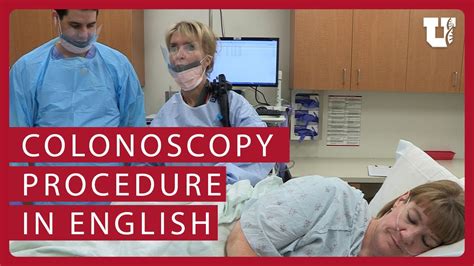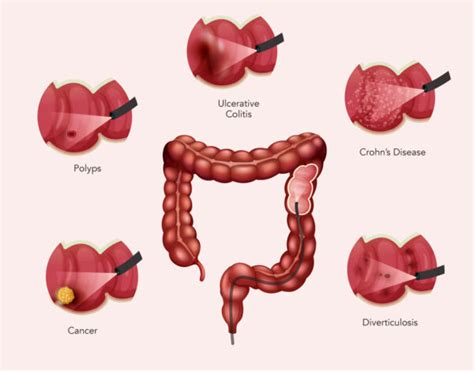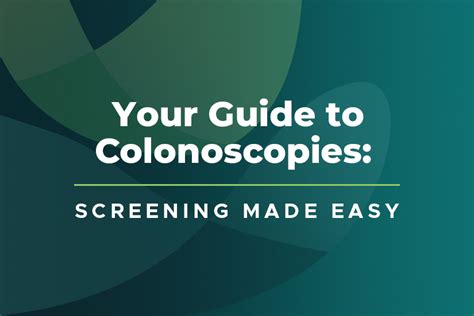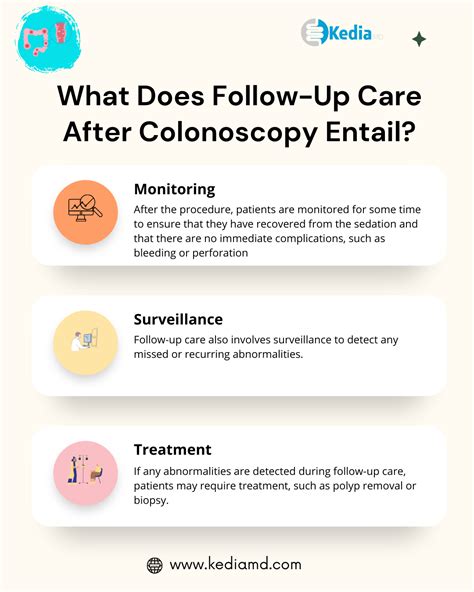Intro
Discover 5 crucial colonoscopy facts, including prep, procedures, and benefits, to understand colon health, screening, and cancer prevention, with insights on risks, results, and recovery.
Colonoscopy is a vital medical procedure that helps detect and prevent colon cancer, a disease that affects millions of people worldwide. Despite its importance, many individuals are unaware of the benefits and facts surrounding colonoscopy. As we delve into the world of colonoscopy, it becomes clear that this procedure is a crucial tool in maintaining gastrointestinal health. With the rise of colon cancer cases, it is essential to understand the significance of colonoscopy and how it can save lives. In this article, we will explore the importance of colonoscopy, its benefits, and the facts surrounding this life-saving procedure.
The procedure itself is relatively simple, involving the insertion of a flexible tube with a camera and light on the end into the colon to visualize the interior lining. This allows doctors to identify any abnormalities, such as polyps or cancerous growths, and remove them before they become a threat. However, many people are hesitant to undergo a colonoscopy due to misconceptions or fear of the unknown. By understanding the facts and benefits of colonoscopy, individuals can make informed decisions about their health and take proactive steps to prevent colon cancer.
As we explore the world of colonoscopy, it becomes clear that this procedure is not just a diagnostic tool, but a preventative measure that can save lives. With the advancements in medical technology, colonoscopy has become a relatively painless and safe procedure. However, there are still many questions and misconceptions surrounding colonoscopy. In this article, we will address these concerns and provide a comprehensive overview of the facts and benefits surrounding colonoscopy.
What is Colonoscopy?

Benefits of Colonoscopy
The benefits of colonoscopy are numerous, and this procedure has been shown to be highly effective in preventing colon cancer. Some of the benefits of colonoscopy include: * Early detection and removal of polyps and cancerous growths * Prevention of colon cancer * Diagnosis of other gastrointestinal disorders * Relief from symptoms such as abdominal pain and bleeding * Peace of mind knowing that your colon is healthyHow is Colonoscopy Performed?

Preparation for Colonoscopy
Preparation for colonoscopy is crucial to ensure that the procedure is successful. Some of the steps that patients need to take to prepare for colonoscopy include: * Following a special diet that is low in fiber and residue * Avoiding certain medications that may interfere with the procedure * Undergoing bowel preparation to cleanse the colon * Arranging for someone to drive them home after the procedureRisks and Complications of Colonoscopy

Colonoscopy vs. Other Screening Tests
Colonoscopy is not the only screening test available for colon cancer, and other tests such as fecal occult blood test (FOBT) and sigmoidoscopy may also be used. However, colonoscopy is generally considered the most effective screening test for colon cancer, as it allows for the visualization of the entire colon and the removal of any abnormalities.Who Should Get a Colonoscopy?

Colonoscopy and Insurance Coverage
Colonoscopy is generally covered by most health insurance plans, including Medicare and Medicaid. However, patients should check with their insurance provider to confirm coverage and to determine if there are any out-of-pocket costs associated with the procedure.What to Expect After Colonoscopy

Follow-Up Care After Colonoscopy
Follow-up care after colonoscopy is crucial to ensure that the patient's colon remains healthy. Patients should schedule a follow-up appointment with their doctor to discuss the results of the procedure and to determine if any further testing or treatment is needed.What is the purpose of colonoscopy?
+Colonoscopy is a medical procedure that helps detect and prevent colon cancer, as well as diagnose other gastrointestinal disorders.
How often should I get a colonoscopy?
+The American Cancer Society recommends that adults aged 45 and older undergo colonoscopy every 10 years, or as recommended by their doctor.
Is colonoscopy painful?
+Colonoscopy is generally a painless procedure, and patients are usually given a sedative to help them relax during the procedure.
What are the risks and complications of colonoscopy?
+While colonoscopy is a relatively safe procedure, there are some risks and complications that patients need to be aware of, such as bleeding or perforation of the colon, infection, and adverse reaction to the sedative.
Is colonoscopy covered by insurance?
+Colonoscopy is generally covered by most health insurance plans, including Medicare and Medicaid. However, patients should check with their insurance provider to confirm coverage and to determine if there are any out-of-pocket costs associated with the procedure.
In summary, colonoscopy is a vital medical procedure that helps detect and prevent colon cancer, as well as diagnose other gastrointestinal disorders. By understanding the facts and benefits of colonoscopy, individuals can make informed decisions about their health and take proactive steps to prevent colon cancer. We encourage you to share this article with your friends and family, and to take the first step towards a healthier colon by scheduling a colonoscopy today. Leave a comment below if you have any questions or concerns about colonoscopy, and don't forget to subscribe to our blog for more informative articles on health and wellness.
